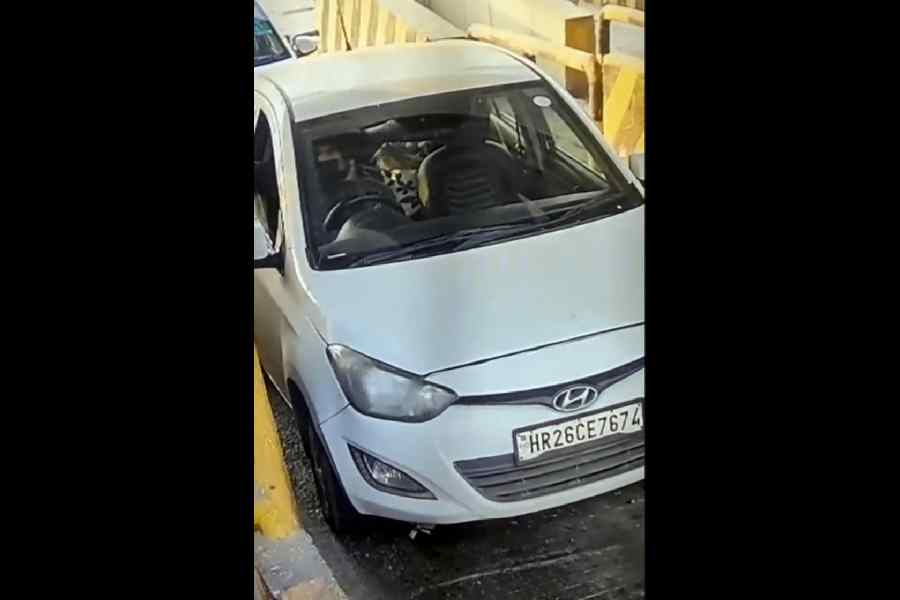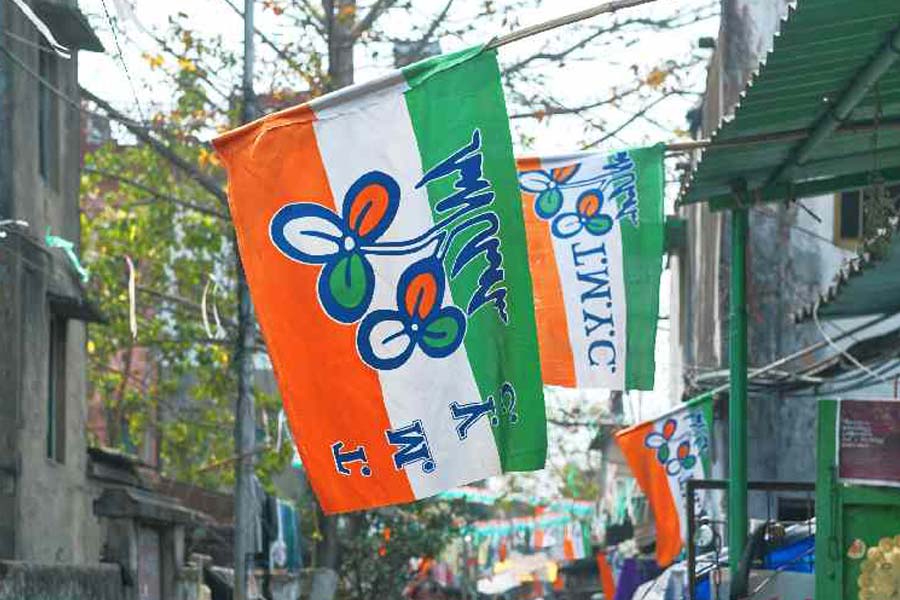A Salt Lake resident bought a new SUV a couple of months ago, selling his old car to the showroom from where he got the new car. Over the past week, he has been frantically calling up the car dealer. The ownership of his old car has not yet been changed.
A south Calcutta resident bought a new car just after Durga Puja. He sold his old car to a certified used-car reseller. But he forgot to take the FASTag off the windshield. Last week, he panicked after receiving a message on his phone about the old FASTag account having been debited.
Ever since images of a white i20 — which blew up near Red Fort on November 10, killing 13 people — shocked the nation, many who have sold old cars are spending sleepless nights.
The i20 had changed hands five times without a proper paper trail, exposing deep flaws in India’s used-car market. Three of its past owners have been detained, a hunt is on for the fourth, and the last owner has been arrested.
The situation is no different in Calcutta or the rest of Bengal. Despite several transfers, the official registration often remains in the name of a past owner. A documented sale often happens without due diligence.
The Telegraph spoke to car dealers, resellers, automobile companies and transport department officials for answers to some of the basic queries surrounding the sale of an old car.
Q: I am planning to sell my car. What documents should I keep handy?
A: Proof of identity, proof of address, and the PAN card. The voter I-card, birth certificate or the passport can serve as proof of identity. The Aadhaar card, an electricity bill or a bank passbook can serve as proof of address. The PAN card is a must because the sale involves a financial transaction linked to the bank account.
Q: What do I do after selling a car?
A: Ask your buyer for Forms 29 and 30, fill them out and ensure the buyer submits them to the registering authority. A registering authority is one at whose office the vehicle will be registered in the name of the new user.
Q: What are Forms 29 and 30?
A: Form 29 is a notice that the seller (transferor) files informing the Regional Transport Office about the sale of a vehicle. Form 30 is what the buyer (transferee) files, applying for the vehicle’s ownership and legal liabilities to be officially transferred to her name. Both forms are necessary for a vehicle to be legally transferred to a new owner.
“Both forms say that they have to be submitted to a ‘Registering Authority’ and both the buyer and seller have to appear before the registering authority to complete the process of change of ownership of a vehicle,” a senior transport department official said.
“Arrangements are being made so that the buyer can be present online. But the seller has to be present physically.”
Once this formality is completed, it usually takes a few days for the transfer of ownership to be reflected in the government’s database.
Several state government officials said that many buyers of used vehicles collect the forms but don’t submit them to the registering authority, and the process of ownership transfer remains incomplete.
Q: I sold my car to a car dealer, but the government records are not showing the change of ownership. What should I do?
A: The seller must insist on Form 29C. This is to inform the registering authority about the delivery of a vehicle to an authorised dealer of registered vehicles. The registered owner fills out the form with the details of her address, the address of the authorised dealer, and the details of the vehicle, including the engine and chassis numbers.
The registered owner signs a declaration in the form saying no challan is pending in her name, that she is responsible for “any inaccuracy or suppression of information”, and that she authorises the dealer “to apply on my behalf for renewal of registration certificate, fitness certificate, duplicate registration certificate and transfer of ownership of the motor vehicle”.
The dealer signs the form, stating: “I shall be solely responsible for the validity of the relevant documents of the vehicle and any incident.”
Senior transport department officials said that once the seller and the dealer have signed Form 29C, the dealer bears sole responsibility for the car.
Q: Who is a reliable buyer? An authorised reseller/ dealer, the showroom I am buying my new car from, a local “used-car sale mela” or an agent who offers the best price?
A: A dealer or a commercial buyer of used cars must be able to display a licence issued by the state transport department authorising them to buy and sell used cars. This also applies to the buyer of a second-hand car.
“If someone is buying a used vehicle from a third party — who is not the direct seller — please check whether the entity has a licence as a dealer for used cars and other vehicles,” a senior transport department official said.
“When the third party has a valid licence, the transaction can be traced through state government records. Otherwise, we have no way to track these deals.”
Q: My pollution/ insurance/ certificate of fitness papers are not in order. Can I still sell my car?
A: No. Unless the papers are in order, you can’t sell your car.
Q: While selling my car, I forgot to deactivate my FASTag account. Nor did I strip the tag off my windshield. Then I got a message about a transaction involving that account. What should I do?
A: Deactivating the FASTag is your responsibility, not the government’s. Once you have sold the vehicle, please deactivate the old FASTag account. The banks have dedicated helplines and websites for FASTag accounts.
Q: I have sold my old car and have all the necessary documents in place. If the car is used for any illegal activity, should I be worried?
A: If you submit Forms 29 and 30 to the registering authority in the presence of the buyer, the transfer of ownership should be completed within a week, a transport department official said.
Once the transfer of ownership is formalised, you need not worry about what happens to the car.
But if you are selling your car to a dealer, insist on a Form 29C, signed by the dealer.










